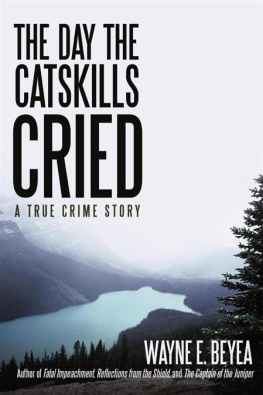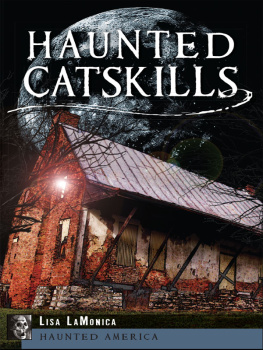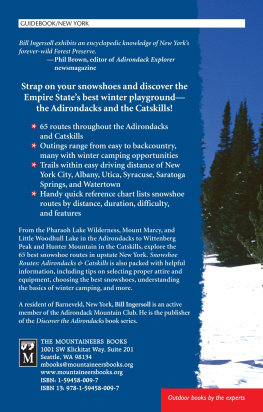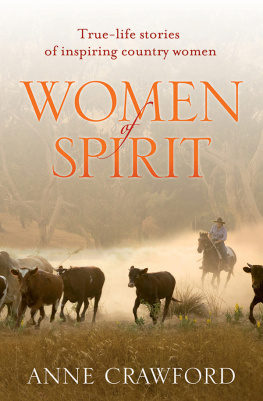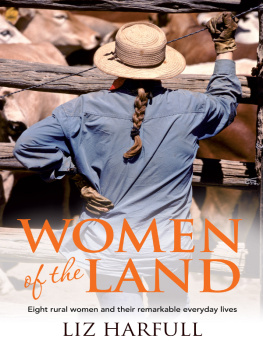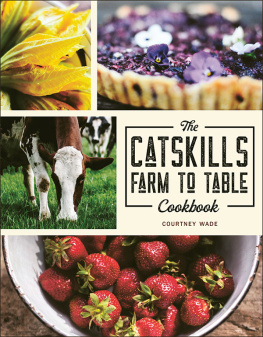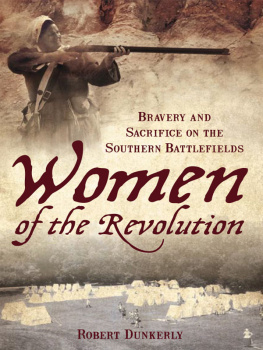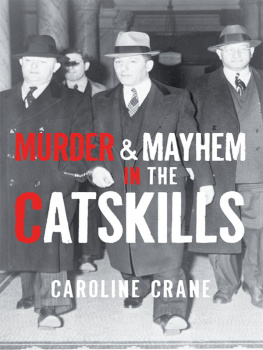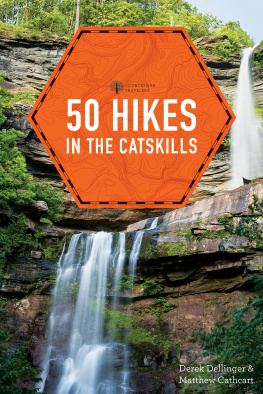Published by The History Press
Charleston, SC 29403
www.historypress.net
Copyright 2011 by Richard Heppner
All rights reserved
Cover images courtesy of the collection of Frederick Allen, Vedder Research Library, Historical Society of Woodstock, Library of Congress and Richard Heppner.
First published 2011
e-book edition 2013
Manufactured in the United States
ISBN 978.1.62584.132.2
Library of Congress Cataloging-in-Publication Data
Heppner, Richard R. Women of the Catskills : stories of struggle, sacrifice, and hope / Richard Heppner.
p. cm.
Includes bibliographical references.
print edition ISBN 978-1-60949-014-0
1. Women pioneers--New York (State)--Catskill Mountains--Biography. 2. Women--New York (State)--Catskill Mountains--Biography. 3. Catskill Mountains (N.Y.)--Biography. 4. Women--New York (State)--Catskill Mountains--History--Anecdotes. 5. Catskill Mountains (N.Y.)--History--Anecdotes. 6. Catskill Mountains (N.Y.)--Social life and customs--Anecdotes. 7. Catskill Mountains (N.Y.)--History, Local--Anecdotes. I. Title.
F127.C3H47 2011
974.738--dc22
2011009968
Notice: The information in this book is true and complete to the best of our knowledge. It is offered without guarantee on the part of the author or The History Press. The author and The History Press disclaim all liability in connection with the use of this book.
All rights reserved. No part of this book may be reproduced or transmitted in any form whatsoever without prior written permission from the publisher except in the case of brief quotations embodied in critical articles and reviews.
This book is dedicated to the women of the Catskills who have shaped and guided my life and to those who work each day to preserve the history that is in our own backyardor just up the road a little.
Early view from Meads Mountain House, Woodstock, New York, looking westward across the Catskills. Photo Courtesy the Historical Society of Woodstock.
Angel, a 1920s woodcut of an angel overlooking the mountains by Ilonka Karasz. Courtesy Historical Society of Woodstock.
The Catskills
Dear mountains, that stand in the sunlight,
In mantles of purple enrolled,
The dews of the dawn on your faces,
Your foreheads encircled with gold;
Youre no strangers to me, so Good-morning,
For you live simply over the way;
So long have I known you as neighbors
That I hail you as comrades to-day.
Earth calls, but you heed not the summons,
The Hudson sings low at your feet,
The pines fold you close in their pleadings,
Each kiss of the violets is sweet.
But fearless and stanch ye make answer:
We must break from these trammels of clay;
Our Maker commands, Come up higher,
So, hearing his voice, we obey.
I think, as I look on your faces,
As I mark the proud strength of each form,
How grandly, through ages, defiant,
Ye have battled with lightning and storm;
And I honor ye, heros undaunted,
As ye stand in the glow of the west,
That, through sunshine and shadow untiring,
Ye have steadily climbed to the best.
Dear mountains, ye teach me a lesson
That my soul reaches out to obey;
Let me learn from your lives to look upward,
Let me cast off the stain of the clay.
Earth calls; but, oh, joy! far above me
Bend the heavens enraptured with fire;
Let me climb to their heights, looking skyward,
Since to grow simply means to aspire.
Harriet Mabel Spaulding, 1887
Acknowledgements
This work began as a small idea that was encouraged and supported along the way by a number of friends, colleagues and those interested in local history. As the idea grew, so too did the number of individuals and institutions that lent their support. To that end, I would like to thank and acknowledge the following for their assistance and the work they do preserving our historical records:
The Historical Society of Woodstock
Vedder Research Library
The Delaware County Historical Association
Princeton University Library
Orange County Community College Library
Kingston Library
James M. Milne Library at SUNY-Oneonta
Woodstock Library
The Town of Woodstock
Deborah Heppner
Eliza Heppner
Barry Samuels
Jean White
JoAnn Margolis
Tobe and Meg Carey
Tim Mallery and the Catskill Archive
Whitney Tarella
Frederick Allen
Addison Jones
On Arrival: An Introduction
As a child, I heard their names frequently: Grandma Ostrander, Aunt Effie and Aunt Anna, to name a fewnames that connected me across time and distance and to relatives that went before. Their stories were often revealed to me during wild Sunday drives through Catskill Mountain towns like Chichester, Roxbury and Andes. They were wild because of my grandfathers driving skills. One hand on the wheel, the other perpetually pointing at a small farm here or a tiny white clapboard house there, we would take sharp mountain curves at breakneck speeds, braking only when we pulled up behind another car whose driver, glowering in the rearview mirror, seemed to possess an understanding of the word limit, as in speed limit. Sitting in the back seat, usually between my mother and her sister, I would be tossed from side to side as they, without any real conviction or hope for success, urged their father to slow down.
I would survive those Sunday drives. Also surviving were the memories of those relatives who crafted what lives they could from the small plots of land that was theirs, taking what they could from the nearby streams and surrounding forests to sustain themselves. It wasnt until much later that it finally dawned on me that the names I often heard on those Sunday drives were that of womenwomen, I would find out later, who had long outlived their husbands or had never married; women who, through sheer determination, had forged a life bearing witness to their strength, ingenuity and creativity. No one ever told them it was a hard life, though their faces and their hands echoed the content of their days. It was the only life they knewthe one they were givenand they lived it with a dignity specific to the context of their physical surroundings.
Years later, as I began my pursuit of local history, I would again remember the women of which my grandfather spoke. More and more, as I read, wrote, conducted research and pursued the history of Woodstock, New York, I became aware that the history I loved so much openly omitted the vital role women had in writing not only Woodstocks story, but that of the Catskills as well. Though occasionally acknowledged, their experience has been basically ignored. Like most of history, I will grant the reader the point that our collective past is one in which power, wealth, benefit of law and the historians pen has been held in the hands of men. That said, the notion or the argument that women were primarily absent in forming and shaping the direction of our local history is a false one. They are there. Though their stories are often found in the footnotes of larger histories, in family albums, in obscure essays or stories produced by local historical societies or in a review of locally preserved newspapers (usually, well beyond the front page), they are indeed there.


